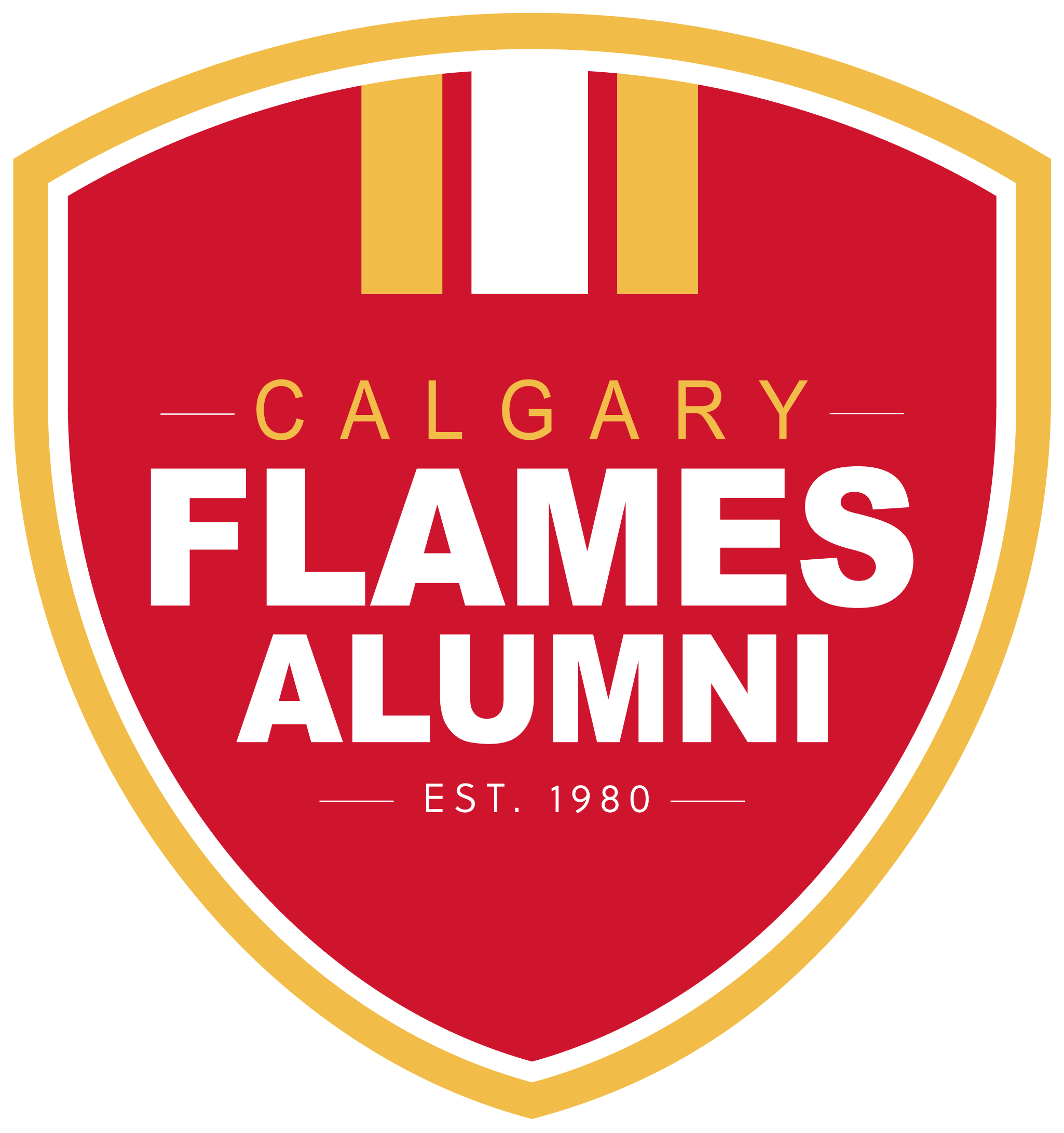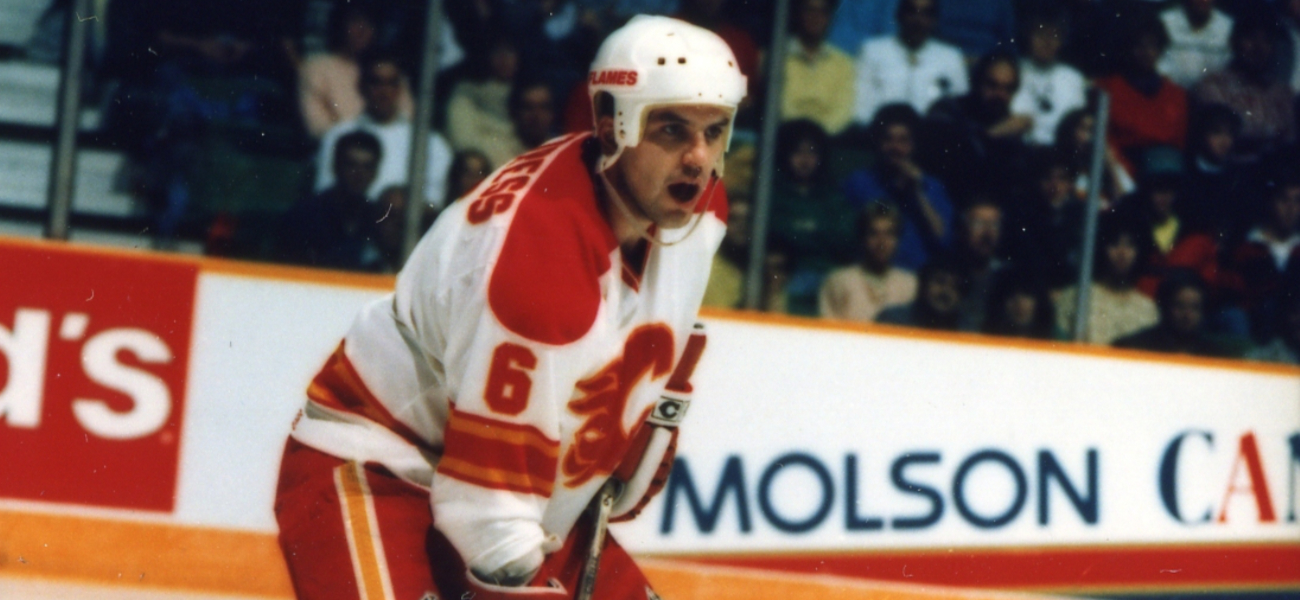As the countdown to a degree of unique immortality began that never-to-be-forgotten night inside the Montreal Forum, May 25th, 1989, Ric Nattress couldn’t quite wrap his head around what to do, how to respond.
“Right at the end, Killer hits the empty net and we know we’re winning, right?” recalls the 58-year-old, an underrated variable of the Calgary Flames’ table-topping equation.
“But how do you react?
“You think, you dream your whole life about, well, maybe not winning a Stanley Cup but at least playing for one. When you’re young, during road hockey on your neighbourhood street, you were always ‘the guy.’ Back in my time, Davey Keon was big. Tim Horton. Those guys. That era.
“Or my favourite all-time defenceman, Bobby Orr. I saw Bobby play as a kid and went to his hockey schools, was fortunate enough to go through a program for underprivileged kids and get there.
“And here it is. My Bobby Orr/Stanley Cup moment. For real.
“I remember, sitting next to Dana (Murzyn) and thinking: ‘What do I do?’ Go nuts, like a six-year-old kid? Or play it cool, like you knew you were going to do it all along?
“Don’t get me wrong, it was an enjoyable feeling, but weird. Definitely weird. You’re kind of caught in-between.
“What we did, for me, took a long time to sink in. As I’ve gotten older – it’s been 31 years – I still think back to that feeling on the bench. Crispie losing his mind while telling everyone it ain’t over yet.
“I remember thinking of my mom and what we’d gone through to get there.
“Hard to appreciate properly at the moment when you’re actually living it, though. More like a: ‘Wow. What just happened …?” type thing.”
Six seasons and two additional stops – Toronto along with, briefly, Philadelphia – following that touchstone ’89 springtime, Nattress would retire, 603 total games after breaking into the NHL in 1982 after being a second-round draft selection of the Montreal Canadiens.
“I was lost,” he admits. “Getting older, after you establish yourself a bit, you see other guys go through free agency and the work they put into it, and you think: ‘I’m going to get paid. Finally.’
“My focus, unfortunately, for the first time in my life was on money, not on the game. Six teams were interested, which was surprise because most of my career had been: ‘Hey, pal, you’re lucky to be here.’
“I’m not blaming Philly but it wasn’t a good choice. My health wasn’t good. But I was set to make more money in those four years than I’d made in my entire career to that point.
“I didn’t really look at it as a chance to win; more as a chance for financial security, after 11 years.
“I was injured a lot, went home after the first season, and …
“I don’t think anybody leaves the game the way they think they’re going to. Or you think you’re never going to leave.
“Then it comes. It comes and it’s a shock. Like: Who am I? With COVID, they’re playing playoffs in ‘the bubble’, right? Well, being a hockey player, you live in a bubble anyway.
“I struggled with that the first five, six years, jumped into business opportunities that weren’t good fits.
“Financially and emotionally, it was tough coming back to ‘the real world.’ All of a sudden, you’ve got to stand in line with everybody else.”
When Nattress retired, there was not yet an NHLPA Life After Hockey Program in place to aid retirees in figuring out where to go and who they were. The late Keith McCreary, a long-time NHLer, helped place Nattress with a transitional company assisting people looking to change professional direction, assessing strengths and direction.
“That certainly opened my eyes to some of the things I’d done previously that I probably should’ve stayed away from,” he reflects.
“I was drinking a little too much. I needed to figure some stuff out and one way was to quit drinking – I’m 17 years without (a drink) now. That gave me a better perspective on how I wanted to live my life and how I wanted to change things for my family. I came from alcohol. My wife came from alcohol. So that step was important, a big turning point, to deal with what I needed to sort through.”
Initially, Nattress balked at the obvious option, wanting to prove himself as more than only a hockey entity, before coming to the realization that there was nothing wrong with continuing to pursue what he knew best.
So he segued into coaching, in the American Hockey League with the Hamilton Bulldogs, reaching a Calder Cup final. “What I found is that I love teaching the game but I’m not sure I have the right personality to be in that environment,” he says,
He branched out into broadcast media, colour commentary and then as radio co-host of Blue & White Tonight, a post-game show following every Toronto Maple Leafs game on Sportsnet 590 The Fan.
In the media, he says he became tired of “playing the game.”
“I’ve got so many corporate buddies, I’ve known for years and done a lot of work with, say ‘Ric, you’ve got to play the game. You’ve got to play the game.’ For almost 20 years, midget right through to pro, you played the game but there was a game to be played, as well.
“I think my listeners loved me because I was honest. Last night they played pretty good, tonight they played pretty bad and just because a guy didn’t play well in one game doesn’t mean he’s the most terrible person in the world.”
Soon to become a grandfather for a second time, in January, Nattress keeps busy doing charity work and corporate speaking.
A couple of initiatives are near to his heart.
An initiative in conjunction with Cisco Canada, for instance, that takes broadband and wi-fi to northern indigenous communities and schools, opening up new horizons to young people.
“They’re allowed to communicate with the world, whether they’re into drama or into science or into sports,” explains Nattress. “They set up face time with professionals, be it athletes or actors or teachers, and it allows these kids to realize that it’s out there.”
Another features other former NHLers and has a connection to six-year-old grandson Zarillious, who is half Woodland Cree from the Whitefish First Nation.
“I was drafted the same year as John Chabot, who played in Montreal, Detroit, Pittsburgh,” Nattress explains. “Johnny’s of aboriginal (Algonquin) [descent], and started a program a long time ago called First Assist Initiative. He goes into schools in northern indigenous communities talking about continuing education, working hard at sports and about community.
“With my grandson and Johnny and I – our history – myself, Bryan Trottier, Aaron Asham, Jamie and Reggie Leach, a few other guys, we head up to northern indigenous communities, the Yukon, all over Canada, visiting schools and trying to give these kids hope.
“Unfortunately, in these communities pre-teen suicide is very prevalent. We’re trying to tell these kids there is opportunity. With my background, growing up without a father, I have a lot of similar stories that these kids do – working your way up, out of hardship in order to fulfill dreams.
“And you want these kids to understand that dreaming is okay.”
And possible to achieve, as May 25, 1989 had proven first-hand.

